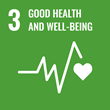Project information
Phage replication in bacterial biofilm
(BioPhage)
- Project Identification
- LL1906
- Project Period
- 1/2020 - 12/2022
- Investor / Pogramme / Project type
-
Ministry of Education, Youth and Sports of the CR
- ERC CZ
- MU Faculty or unit
- Central European Institute of Technology
In 2017, the World Health Organization declared Staphylococcus aureus to be an antibiotic-resistant pathogen for which new therapeutics are urgently needed. Upon infection, S. aureus forms biofilms that can only be treated by the long-term application of several antibiotics in high doses or the surgical removal of the infected tissues. An alternative approach, phage therapy, has not been approved for clinical use, because the effects of phage infection on a biofilm are not sufficiently characterized.
We propose to study the dynamics of the propagation of Herelleviridae phage phi812 in a S. aureus biofilm and molecular details of phi812 replication in a cell. We integrated a microfluidic system into a light-sheet microscope to enable continuous multi-day observation of the phage infection of a biofilm. We will determine how sub-populations of metabolically dormant or phage-resistant cells in a biofilm provide herd immunity against phi812 infection. Our system enables the fixation of biofilm segments for subsequent correlative imaging by serial block-face scanning electron microscopy to identify the interactions of phages with bacterial cells. We will use focused ion beam milling together with cryo-electron microscopy and tomography to determine high-resolution structures of previously uncharacterized phi812 replication and assembly intermediates in S. aureus cells. We will study the function of bacterial membranes and macromolecular complexes in the initiation and completion of phage genome delivery, the assembly of phage portal complexes and heads, and the mechanisms of genome packaging and head-tail attachment.
This proposal’s biological significance lies in its focus on the as-yet uncharacterized interactions of phages and bacteria under biologically and clinically relevant conditions. Our analyses of phage spread in a biofilm, herd immunity against phage infection, and phage replication in cells may identify approaches for making phage therapy more effective.
Sustainable Development Goals
Masaryk University is committed to the UN Sustainable Development Goals, which aim to improve the conditions and quality of life on our planet by 2030.
Publications
Total number of publications: 17
2023
-
Carpe pili! Hunting strategy of phage JBD30 revealed by combination of cryo-electron and fluorescent microscopy
Year: 2023, type: Conference abstract
2022
-
A hunting strategy and virion structure of P. aeruginosa bacteriophage JBD30 revealed by cryo-electron microscopy
Year: 2022, type: Conference abstract
-
A hunting strategy and virion structure of phage JBD30 revealed by cryo-electron microscopy
Year: 2022, type: Conference abstract
-
Hunting Strategy and Virion structure of Bacteriophage JBD30 Revealed by Cryo-electron Microscopy
Year: 2022, type: Conference abstract
-
STRUCTURAL CHARACTERISATION OF VIRUS REPLICATION IN SITU
Year: 2022, type: Conference abstract
-
Tail proteins of phage SU10 reorganize into the nozzle for genome delivery
Nature Communications, year: 2022, volume: 13, edition: 1, DOI
2021
-
Baseplate structure of bacteriophage phi812 and mechanism of cell binding and degradation
Year: 2021, type: Conference abstract
-
Baseplate Structure of Bacteriophage Phi812 and Mechanism of Cell Wall Binding and Penetration
Year: 2021, type: Conference abstract
-
Baseplate structure of bacteriophage phi812 reveals functions of host cell recognition and cell wall degradation
Year: 2021, type: Conference abstract
-
Baseplate structure of bacteriophage phi812 reveals mechanism of cell wall binding and penetration
Year: 2021, type: Conference abstract
